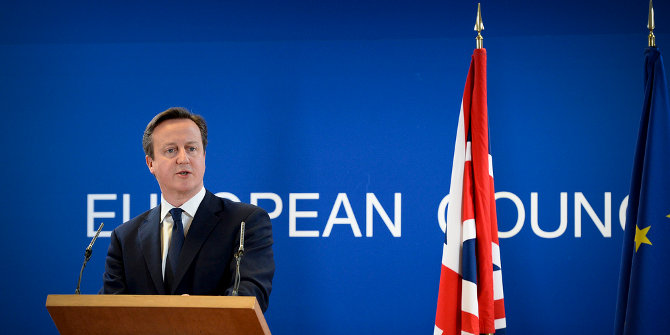Next week will see the launch of a series on euroscepticism. This series is the result of a collaboration between LSE’s British Politics and Policy and EUROPP blogs and the University of Nottingham’s Ballots & Bullets.
Euroscepticism has been a growing issue in the media with David Cameron’s recent and long-awaited speech announcing his commitment to hold a referendum on Britain’s EU membership should the Conservatives win the next election. Whilst Cameron has asserted his own commitment to staying in the EU, but with negotiated terms of membership, some in his party support leaving the EU. Our series will address Conservative euroscepticism and parliamentary rebellions with posts from Tim Bale and Philip Cowley.

As well as Conservative euroscepticism we are also seeing the rise of parties such as UKIP and far-right parties that are using an anti-EU platform from which to express their views. Matt Goodwin will examine these parties and explore the implications of their increased prominence for the broader political scene.
Alex Smith will look at the view from Scotland and what Scottish independence could mean for the country’s position in the EU.
As well as examining eursocepticism within Britain, our series will look further afield to Denmark (Benjamin Leruth), Greece (Kyriaki Nanou and Susannah Verney), and the US (Kelly Katrina), and also within the institutions of the EU itself (Natalie Brack). Oliver Daddow will outline the history of euroscepticism in the UK.
The series will also examine a number of other interesting themes. How do young people feel about the EU (Stuart Fox)? How has the EU been portrayed in fiction (Steven Fielding)? Why has the EU been unable to effectively tackle euromyths (Simon Usherwood)? Finally, we talk to Will Hutton about the European project and its future in an increasingly uncertain world.








I look forward to this very much. But please include a separate analysis of the situation of Wales. Lumping us with the English midlands is hardly a post-devolution reality. Plaid Cymru has come out with a reasoned argument that Wales is a net beneficiary of EU funding. This has been strongly echoed by the autonomous Farmers Union of Wales. The Labour-run Welsh government takes a different line from Labour MPs here. So there’s a different public narrative which needs to be explored.